I keep telling myself that learning a lake in mid drought is akin to building sand castles in the surf; just about the time you mark the downed timber and rock piles – some unseasonable storm erases all traces of beaches and islands, and you’re left poring over photos to see what topography remains within casting distance.
Then again, us fishermen have always kept wisdom and logic at arm’s length, enlisting its aid only when it suits us. Standing in a downpour in icy water doesn’t suggest we’ve engaged our frontal lobe with much sincerity, given our reliance on superstition and the occasional hunch to tell us when fishing is especially good …
… and as my partner in crime was four legged and in need of exercise, meant that the unseasonable temperatures be damned, and 109 was just as fishy as 92, and unless I emptied the pooch in someone else’s backyard, I’d find his IED’s in my grass.
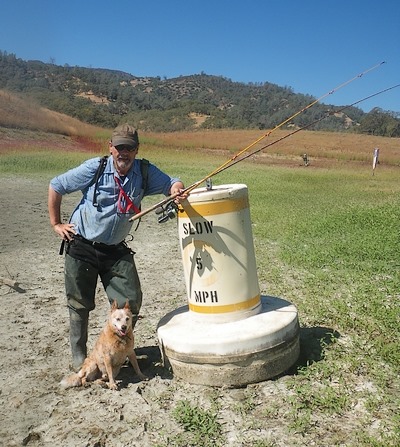
In September and October we covered about 55 miles of shoreline – 25 miles of unique shore and the balance retracing our steps back to the vehicle. We found four different colors of tennis balls, three sizes of Frisbee, eight full bottles of beer, six colors of discarded brassieres, sinkers, weights, plugs, and lures, 3 pound iron balls, trolling planes, flashers, dive weights, broken rods, boat parts, folding lawn chairs, shopping carts, and unveiled numerous angling misdeeds … all the while avoiding snakes, quicksand, bog mud, and over zealous Bureau of Reclamation rangers – intent on shackling my pal on the end of a tether.
The trick was to get clear of the pavement before dawn, allowing us unfettered access to all those miles of newly exposed lakebed. Soupy ground and ample mud coupled with the distance to open water kept the casual vacationers close to the car, with the rangers alternating the application of bandages or lectures, depending upon the infraction.
While short-lived, the early bite often produced some nice fish – as it was too early for the boating crowd and the noise and wake action that followed.
The low water conditions exposed a great deal of clandestine terraforming on the part of the bass boat crowd. Long chains of Christmas trees anchored with cinder blocks and rope had been dropped in many of the coves around the Oak Shores area of the lake. Stacked rocks and piles of tree limbs had been sewn into strategic areas only reachable via boat. My assumption was the numerous tournaments hosted by the lake were the root cause of all this carefully constructed structure. Once sank and marked on a GPS, it would make for a nice advantage over visiting anglers less industrious.
Bug activity was minimal and provided only food for the resident Threadfin Shad. While I’ve identified the Hexagenia Limbata on the east side of the lake, and due to its size is likely to be forage for prowling bass, the more accessible west shore shows no traces of the big mayflies, nor was there any surface activity other than leaping carp in either morning or evenings.
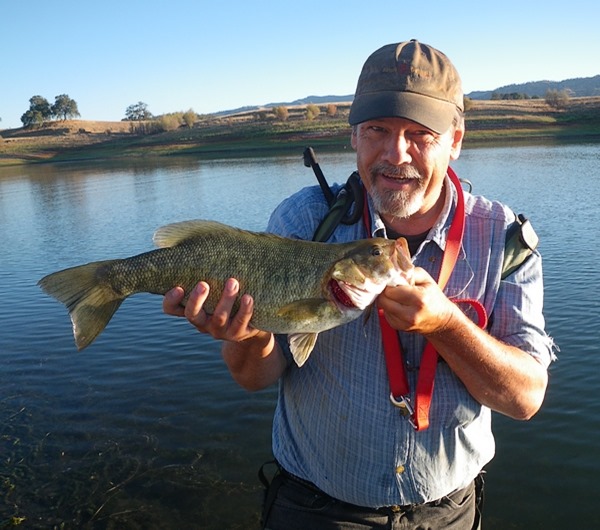
Only a solitary white caddis fly appeared on the east side, and while it daubed its way across the weed beds ovipositing, only small shad attempted an intercept.
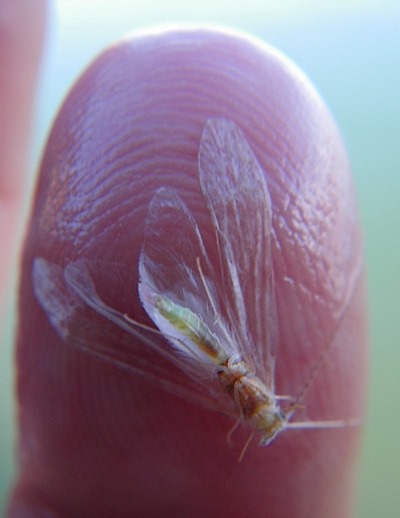
The lack of winged insect life confirmed that Lake Berryessa is primarily a baitfish style fishery, where anything resembling the silvery threadfin shad is fair game. Outside of midge swarms, I encountered none of the traditional winged lake fare. No damselflies, mayflies, or dragonflies, only the solitary olive bodied white caddis (shown above) that was available in fair numbers, but without any fish keying on them to make their imitation viable .
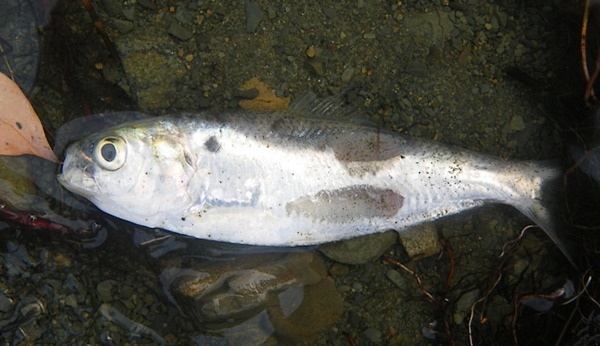
Above is a sample threadfin shad that had floated ashore. This sample was about 4” long, and looked like it had been mouthed by something larger. Most of the shad I find are between 2” –4” long, and account for the morning feed – as large bass chase schools of shad into and out of coves and weed beds. It may also explain why the 1/4 and 3/8 ounce silver Kastmaster was the most numerous lure decorating all the exposed tree stumps.
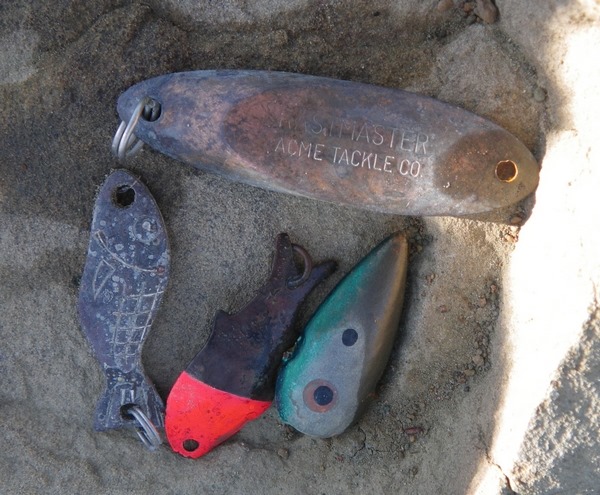
Of late the fishing has died completely. The weather grows a bit cooler and the change in season is likely causing everything to shift around again. I’ve taken to “prospecting” weed beds and drop offs with a big top water plug. It allows me to move briskly along the shoreline while occasionally drumming up large fish.
… more importantly, it leaves one hand free to fling muddy tennis balls down field, keeping the pooch amused between meals of unidentifiable decaying things.
Drought exposed bank is not a nice linear hike. At distance the bank looks like an unbroken line, but when rounding the edge of an island, immense bays can be hidden that must be circumvented to proceed further down the shoreline. By the same token the return hike is often “as the Crow flies” – which is considerably shorter than the morning walk outbound.
As we got our first light dusting of rain yesterday, I’m keeping the fingers crossed that this Winter might erase much of my earlier work cataloging shoreline and the physical features of the lake. More importantly, if El Nino delivers on its promise, I may have a few other spots to fish next season.
The fire ravaged area at the dam gives pause to my optimism given even dry years result in the slopes above the highway slipping down onto the pavement below. Without vegetation to hold back all that loose rock I may need to find another locale that can be accessed should Winter spill water abundantly.

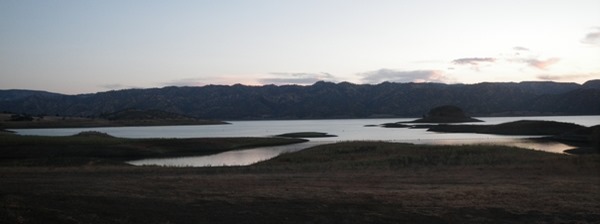
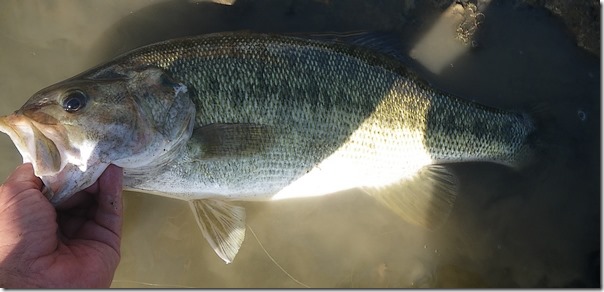
 It’s the burgeoning field of “BioMimicry” – the imitation of natural processes in a man made device. Mayfly gills and their movement appear to be the last great hope for canaries.
It’s the burgeoning field of “BioMimicry” – the imitation of natural processes in a man made device. Mayfly gills and their movement appear to be the last great hope for canaries.